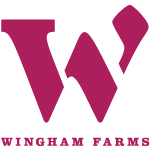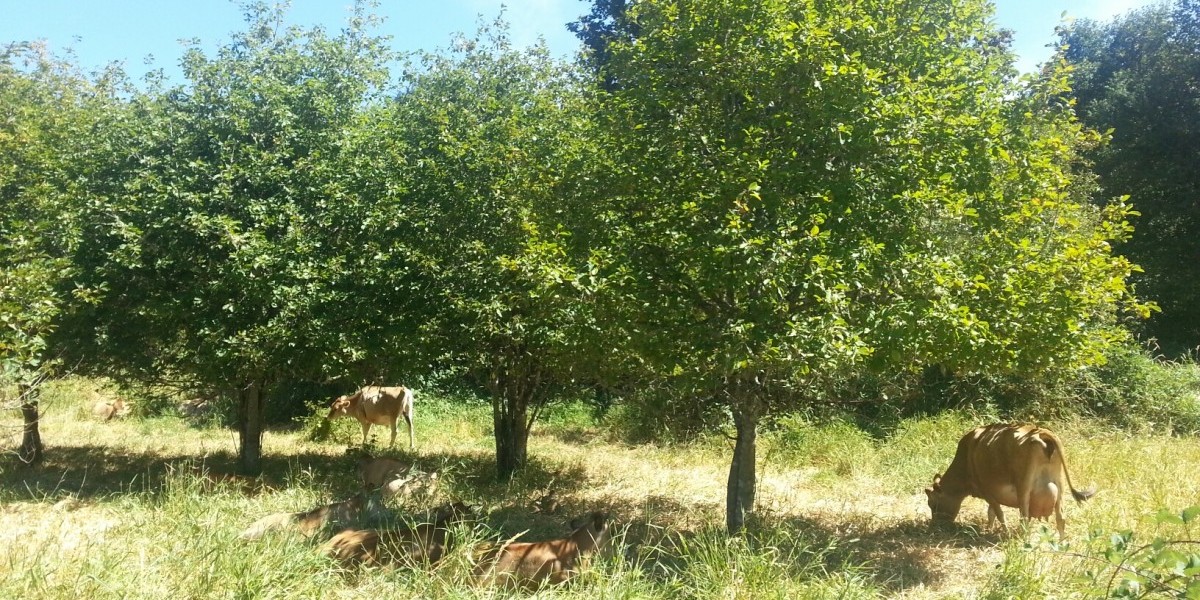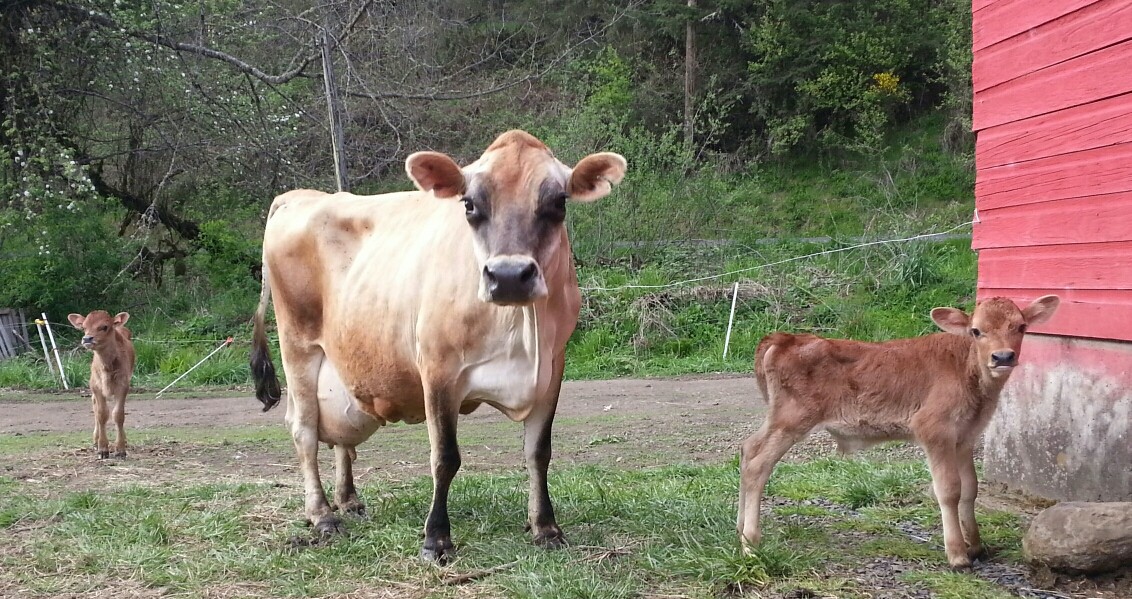Dairy:
Our herd of eight purebred Jersey dairy cows is outdoors on pasture 365 days a year. That number compares quite favorably to the organic dairy standard, which is just 120 days outdoors (or less, when there is no pasture, as in the recent drought in many places in the west)! We have enough pasture on our 140-acre farm that we can rotate the cows onto fresh grass throughout the year. In the dry parts of summer and the cold of winter, when the grass slows its growth, we supplement the fresh grass with our own hay that we gather during the late spring’s abundance.
If you want to see for yourself how our cows live, you can view them in their habitat by hiking through our farm between miles 4 and 4.75 on the Banks-Vernonia State Trail, just north of the Manning trailhead parking lot. It actually can be hard to see the cows much of the time, as they have a large pasture complex that we move them through and many shaded areas in which to rest. You often can find the meat steers hanging out near the central gates and their main water tanks (milepost 4.5) in the later afternoons.
We do not pasteurize or homogenize our milk, so that we and our customers can enjoy the milk’s natural qualities, including an intact protein, fat and vitamin structure and the retention of natural enzymes and probiotics, all great for cheese making, for example. You can read more about “raw” or natural milk from many sources, including the Weston A. Price Foundation (see especially its “Campaign for Real Milk”). Milking cows that are outdoors and grass-fed also means milk that is higher in heart-healthy Omega-3 fatty acids.
Many people would like to provide themselves with this kind of high-quality milk, but owning a milk cow is a different level of challenge from raising a garden or a flock of backyard chickens (not even considering if one’s neighborhood would allow it!). Owning and milking even a single dairy cow involves a commitment of thousands of dollars and several hours of labor a day – and usually yields too much milk for one individual or family (upwards of 20 gallons a week). Therefore, we help clients conveniently obtain raw milk in the quantities that suit their needs through a herd-share system, rather like a milk version of a vegetable CSA (Community Supported Agriculture). Our milk customers each buy a share of the Wingham Farm herd and then contribute a proportional monthly “agistment” (boarding) fee to support the maintenance of the animals. As owners of the herd, herd-share customers receive their portion of what the herd produces, particularly fresh milk!!
Being a herd-share customer is a serious commitment – it involves clear understanding about raw milk and trust of our care of the animals and our attention to cleanliness and safety in the milking and milk-storage process. We prefer to do a farm tour and demonstration milking for prospective herd-share customers, and all herd-share customers sign a contract when they purchase their shares. Customers can purchase a full share for $100 and pay a monthly agistment (price varies from $86-$95/month depending on pick-up or delivery distance from the farm); the yield for one share is typically 1 gallon of milk/week. We also offer larger and smaller shares to meet your needs and are happy to explain the prices to you.
Please email danielleethefarmer@gmail.com if you are interested in learning more about how herd-shares work, how we handle our dairy, and how you might become a partner.






